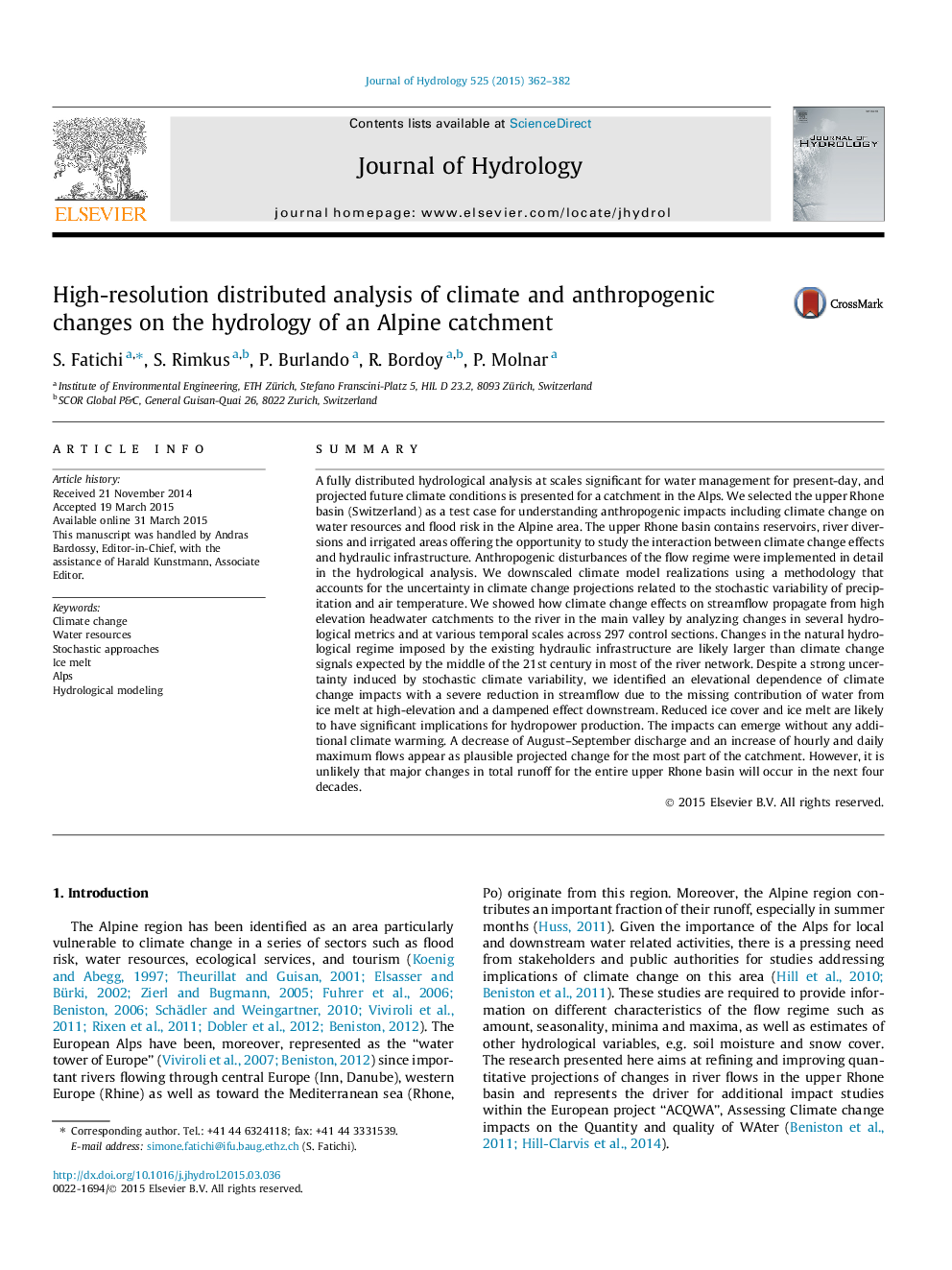| Article ID | Journal | Published Year | Pages | File Type |
|---|---|---|---|---|
| 6410616 | Journal of Hydrology | 2015 | 21 Pages |
â¢Changes in the hydrological regime due to reservoirs are very significant.â¢Total runoff for the upper Rhone basin is unlikely to change in the next decades.â¢An elevation dependence of climate change is identified due to melting glaciers.â¢Reduced ice cover and ice melt can affect hydropower production.â¢An increase of hourly and daily maximum flows appear as a possible projected change.
SummaryA fully distributed hydrological analysis at scales significant for water management for present-day, and projected future climate conditions is presented for a catchment in the Alps. We selected the upper Rhone basin (Switzerland) as a test case for understanding anthropogenic impacts including climate change on water resources and flood risk in the Alpine area. The upper Rhone basin contains reservoirs, river diversions and irrigated areas offering the opportunity to study the interaction between climate change effects and hydraulic infrastructure. Anthropogenic disturbances of the flow regime were implemented in detail in the hydrological analysis. We downscaled climate model realizations using a methodology that accounts for the uncertainty in climate change projections related to the stochastic variability of precipitation and air temperature. We showed how climate change effects on streamflow propagate from high elevation headwater catchments to the river in the main valley by analyzing changes in several hydrological metrics and at various temporal scales across 297 control sections. Changes in the natural hydrological regime imposed by the existing hydraulic infrastructure are likely larger than climate change signals expected by the middle of the 21st century in most of the river network. Despite a strong uncertainty induced by stochastic climate variability, we identified an elevational dependence of climate change impacts with a severe reduction in streamflow due to the missing contribution of water from ice melt at high-elevation and a dampened effect downstream. Reduced ice cover and ice melt are likely to have significant implications for hydropower production. The impacts can emerge without any additional climate warming. A decrease of August-September discharge and an increase of hourly and daily maximum flows appear as plausible projected change for the most part of the catchment. However, it is unlikely that major changes in total runoff for the entire upper Rhone basin will occur in the next four decades.
